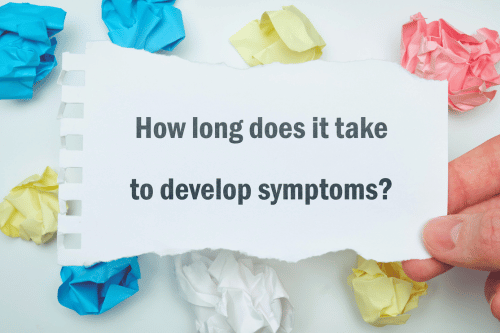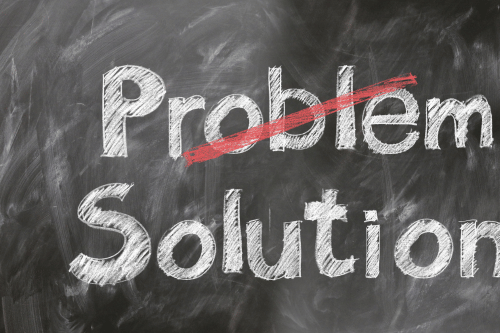

Many people who begin addiction treatment want to know how long does medical detox take before they start the process. The answer depends on the substance, the patient’s health, and the type of detox program. Medical detox involves careful monitoring by a health professional, use of medication when needed, and therapy to help manage symptoms and reduce the risk of relapse.
Medical detox is the process of removing substances from the body while keeping the patient safe and stable. It is different from quitting cold turkey because it uses medication, nutrition, and supportive care to help the nervous system adjust. Detoxification can involve opioid, alcohol, benzodiazepine, stimulant, or prescription drug addiction treatment.
During this stage, a treatment center may provide opioid detox, alcohol detoxification, or benzodiazepine detox. Detox centers like Sullivan Recovery help manage symptoms such as anxiety, nausea, headache, irritability, fatigue, insomnia, and appetite changes. This process is the first step toward sobriety in many treatment programs.
The length of medical detox depends on several factors. These include the frequency of substance use, the type of drug, the presence of polysubstance abuse, and the patient’s overall health. Metabolism, genetics, and the severity of substance dependence also affect recovery time.
For example, opioid use disorder may require methadone, buprenorphine, or naltrexone to reduce drug withdrawal symptoms. Alcohol detoxification may take longer if the patient is at risk for delirium tremens, seizure, or psychosis. A physician or mental health professional will assess the patient’s health, blood pressure, dopamine levels, and nervous system stability to determine the safest approach.

Opioid detox, including fentanyl, heroin, or opiate withdrawal, often lasts 5–10 days. Methadone or buprenorphine may be used to manage cravings and stabilize dopamine function in the brain’s reward system. Stimulant detox from methamphetamine or Adderall can last 1–2 weeks, with symptoms like fatigue, depression, and attention difficulties.
Alcohol detoxification usually takes 3–7 days, but severe cases may last longer due to risk of delirium tremens, tachycardia, and palpitations. Benzodiazepine detox, especially from diazepam, may last weeks due to its long half-life and effects on the central nervous system. A medical detox program will adjust the pace to avoid complications.
Detox without professional help can be dangerous. Sudden withdrawal from alcohol, benzodiazepines, or opioids can cause severe health risks like seizure, paranoia, confusion, or delirium. A supervised drug detox program offers medical support, peer support, and counseling.
Facilities like Sullivan Recovery, Recovery Village, American Addiction Centers, and Evoke Wellness provide structured detox programs. These centers use a mix of medicine, therapy, and nutrition to support the nervous system, improve coping skills, and prepare patients for further rehab.
Medication is a key part of safe detoxification because it helps the patient manage both physical and psychological symptoms of drug withdrawal. Opioid withdrawal may be managed with methadone, buprenorphine, or clonidine to reduce blood pressure, nausea, and anxiety while stabilizing dopamine levels in the brain’s reward system. Naltrexone and naloxone are also used in opioid use disorder treatment to prevent relapse and reverse the effects of substances like fentanyl, opiates, and prescription drug addiction.
In alcohol detoxification, benzodiazepines such as diazepam are often prescribed by a health professional to lower the risk of seizure, delirium tremens, and psychosis. For stimulant detox, especially from methamphetamine or Adderall, medicine may focus on reducing irritability, restoring appetite, improving attention, and lowering stress. A physician or mental health professional will consider the patient’s metabolism, genetics, and frequency of substance use when adjusting treatment programs to maintain safety and encourage long-term sobriety.

Many patients entering detox have a dual diagnosis, such as bipolar disorder, depression, or anxiety, alongside substance abuse or substance dependence. Therapy methods, including dialectical behavior therapy and evidence-based psychology approaches, address mental health symptoms while supporting detoxification. These sessions help regulate the central nervous system, improve coping behavior, and build motivation for recovery.
A mental health professional may teach stress management, relapse prevention, and nutrition planning to strengthen physical health during detox. Peer support groups, halfway house programs, and treatment centers give patients structure while reinforcing positive behavior change. Addressing both the disease of addiction and co-occurring mental health disorders during detox centers reduces relapse risk and supports lasting recovery.
Medical detox can involve serious risk, especially without supervision from a health professional. Severe drug withdrawal symptoms such as tachycardia, high blood pressure, vomiting, paranoia, palpitations, headache, and confusion may occur. Alcohol detoxification can lead to delirium tremens, which is a dangerous condition causing delirium, seizure, and possible death if untreated.
Opioid detox can trigger intense cravings, irritability, nausea, fatigue, and emotional distress. Benzodiazepine withdrawal, especially after long-term use, may cause insomnia, psychosis, and central nervous system instability. A physician monitors the nervous system, dopamine regulation, and reward system activity during the detox program to lower medical risks, maintain patient safety, and improve health outcomes.
Some patients explore rapid detox under anesthesia, where medicine and anesthesia are used to speed up drug detoxification while the patient is unconscious. This approach can be used for opioid detox, but it carries significant health risks, including heart pressure changes, irregular blood pressure, neurotransmitter imbalance, and dangerous reactions in the central nervous system. It can also affect the metabolism and recovery process.
Rapid detox is not suitable for all substances or patients, especially those with polysubstance use, stimulant addiction, or alcohol dependence. Many treatment centers recommend gradual detox in a supervised drug detox program so the nervous system and neurotransmitter balance can recover safely. A medical detox plan should consider the type of drug, length and frequency of use, and patient health to ensure effective and safe treatment.

Nutrition plays a big role in recovery. Poor diet can worsen fatigue, irritability, and mental health symptoms. A balanced diet supports dopamine production, blood pressure stability, and overall metabolism.
Hydration and proper vitamins help the body recover from substance abuse damage. Medical detox programs often include nutrition planning to restore physical health alongside drug and alcohol withdrawal treatment.
Detox alone is not a full recovery plan, as it only addresses the physical process of drug detoxification. After detoxification, patients benefit from ongoing therapy, rehab, and structured treatment programs that focus on mental health, relapse prevention, and long-term sobriety. Outpatient and inpatient rehab options provide peer support, dialectical behavior therapy, and coping strategies to address triggers, stress, and behavior patterns linked to substance abuse.
At Sullivan Recovery, our outpatient drug and alcohol treatment center helps patients transition smoothly from detox to therapy-based care. We provide access to mental health professionals, nutrition guidance, and resources like halfway house placements to promote stable recovery. We also work with insurance providers to ensure treatment programs for opioid use disorder, alcohol detoxification, benzodiazepine dependence, stimulant addiction, and polysubstance abuse remain accessible to every patient.

Sullivan Recovery offers outpatient medical detox for opioid, alcohol, benzodiazepine, stimulant, and prescription drug addiction. Our health professionals monitor blood pressure, dopamine regulation, and central nervous system function while managing withdrawal symptoms such as nausea, vomiting, insomnia, irritability, and headache. Medication such as methadone, buprenorphine, clonidine, diazepam, or naltrexone may be used when appropriate to improve patient safety and lower relapse risk.
We address substance abuse, substance dependence, and dual diagnosis with evidence-based treatment programs that incorporate psychology, peer support, and coping skills. Whether the patient is detoxing from fentanyl, methamphetamine, Adderall, or engaging in polysubstance use, we ensure a safe environment and provide education on nutrition, stress management, and recovery motivation. Our approach focuses on treating both the disease of addiction and any co-occurring mental health disorders to promote lasting sobriety.
So, how long does medical detox take? For most substances, the length can range from a few days to a few weeks, depending on the drug, dosage, frequency of use, genetics, and whether there is a dual diagnosis. Opioid detox may last longer when medication like methadone or buprenorphine is used, while alcohol detoxification timelines can vary due to risks such as delirium tremens or seizure.
Medical detox is a critical first step toward sobriety because it stabilizes the nervous system, restores neurotransmitter balance, and prepares the patient for continued therapy and rehab. With the right detox program, professional supervision, and access to treatment centers, patients can move from withdrawal into recovery with reduced health risks. At Sullivan Recovery, we combine detox, rehab, and ongoing support so every patient—whether overcoming opioid use disorder, stimulant addiction, or alcohol dependence—has the tools to achieve long-term recovery.
At Sullivan Recovery, as an in-network provider we work with most insurance plans, such as:
And More
If you or a loved one are struggling with mental health challenges or substance abuse, reach out to Sullivan Recovery today. Our team of compassionate professionals is here to support your journey towards lasting well-being. Give us a call at 949-836-7180.
Some treatment programs offer at-home medical detox with telehealth check-ins from a health professional. However, this option is typically only considered for lower-risk cases and specific substances. Severe withdrawal symptoms, such as delirium tremens or seizure, require in-person monitoring at a treatment center.
Yes, polysubstance use often extends the detox timeline. The body must process withdrawal from each substance, and medications may need to be adjusted to address overlapping symptoms. Medical supervision helps ensure safe and effective management for complex cases.
Most insurance plans cover medical detox if it’s deemed medically necessary. The exact coverage depends on your provider, your plan, and whether the detox is inpatient or outpatient. It’s best to verify coverage with both your insurance company and the treatment center before starting.
Rapid detox may speed up the physical removal of substances, but it does not shorten the overall recovery process. The brain and nervous system still need time to adjust after substance dependence. Ongoing therapy, rehab, and support remain essential after any form of detox.